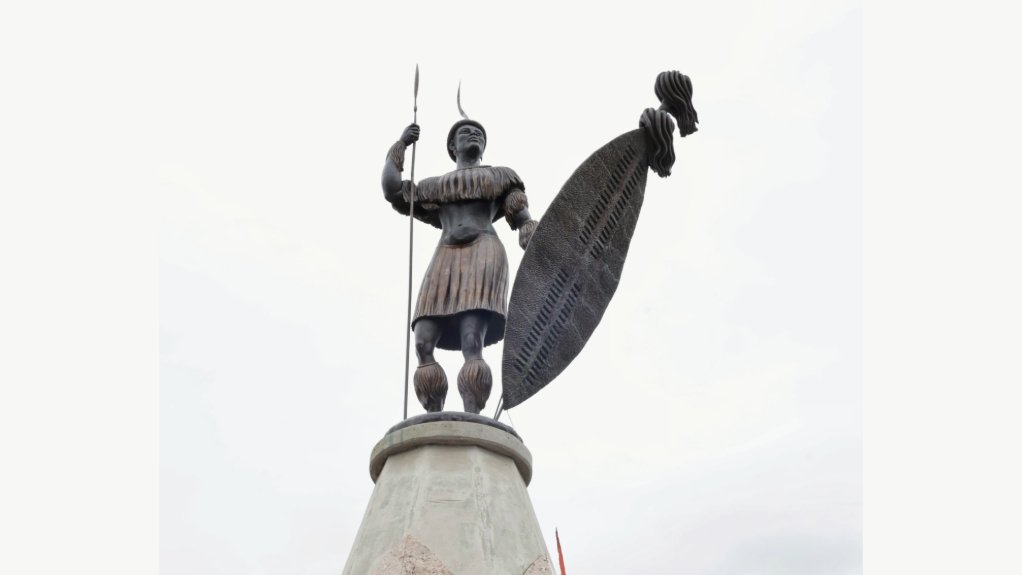President Cyril Ramaphosa described the unveiling of King Shaka’s statue at the King Shaka International Airport, in KwaZulu-Natal, on Thursday, as a great source of pride that tells the history of Shaka’s life and his contribution, all of which he said are being retold and reclaimed by the generation born into democracy.
Ramaphosa was speaking in Durban, where he said the statue stood as a testament to a “glorious era” in the life of the Zulu nation during the reign of King Shaka.
He described Shaka as a warrior king, a unifier and a reformer, saying it was fitting that he had been immortalised in the statue, which he said represented, not just a great person, but a history, a value system and the aspirations of a people.
“This statue is a testament to unity. Since his reign began in the early 1800s, King Shaka used the military and political systems he established to bring his people together. He forged alliances, integrated rival clans and reformed social structures to unite AmaZulu towards a common identity and a common purpose,” Ramaphosa stated.
He added that it was an aspiration that transcended generations, and said government had a responsibility to strive towards this goal “no matter how difficult it is or how long it takes”.
He stated that King Shaka’s illustrious history was well-known, describing his reputation as legendary.
“And yet for centuries, those who oppressed the South African people sought to denigrate his name to suit their own ends. During colonial and apartheid rule, we were force-fed the history of the oppressor. We were taught about Vasco da Gama, Henry Francis Fynn, Sir Harry Smith and Piet Retief,” Ramaphosa pointed out.
He stated that the story of the young King Shaka and how he triumphed over a difficult childhood was not told to inspire young black children.
“Instead, we had to recite poems about John Ross and Dirkie Uys,” he said.
Ramaphosa said the democratic government had been deliberate in its work to restore pride in the history of all South Africans by reconstructing and rebuilding what is taught in schools.
“We will reclaim our history. We will ensure that it is glorified in this generation and into the next. We will lift high our heroes. We will name our streets and buildings after them, write books about them, make television shows about them, and erect statues in their honour. We do so because these heroes represent our past and reflect our aspirations for the future,” he stated.
Democratic Alliance (DA) KwaZulu-Natal spokesperson on sports, arts and culture Tammy Colley said the “long overdue” unveiling of the King Shaka statue was a significant event that highlighted the province's rich cultural heritage and shared history.
“As the founder of the Zulu nation, King Shaka played a crucial role in shaping KwaZulu-Natal’s identity, and this statue serves as a symbol of pride for our province,” she said.
Colley highlighted that in terms of cultural tourism, the statue can serve as a focal point for attracting visitors.
“This not only enriches the local economy through tourism revenue but also creates job opportunities in various sectors such as hospitality, guide services, and handicrafts. Furthermore, initiatives that highlight the province’s cultural significance can inspire the development of community programs, allowing locals to actively engage with their heritage while benefiting economically,” she said.
EMAIL THIS ARTICLE SAVE THIS ARTICLE ARTICLE ENQUIRY
To subscribe email subscriptions@creamermedia.co.za or click here
To advertise email advertising@creamermedia.co.za or click here











